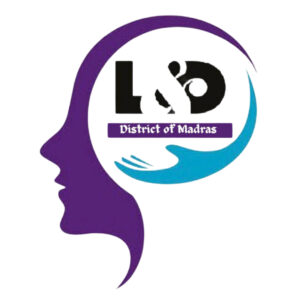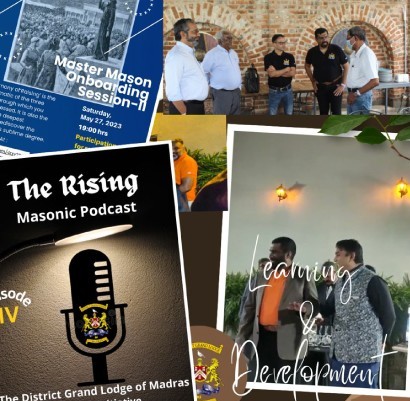FREEMASONRY JOURNEY
Learning And Development

Freemasonry is a journey of personal discovery and development. Insight into the meanings and relevance of our ritual, history and traditions are gained from experience, explanation and reflection. These help to foster curiosity, develop understanding and increase enjoyment. Over the past few centuries Freemasonry has been continually evolving due to several factors.
Globalisation landscape, rising complexity, and the digital revolution are now redefining the mix of members, their behaviours, and their expectations. The shift to a digital, knowledge-based world means a huge shift in the mindset and behaviour of the newly initiated and the probable candidates. It is a matter of time where our Lodge’s pull factor will be based on intangible assets—skilled members, exceptional leaders, meritocracy and knowledge-based metrics.
All of these trends have elevated the importance of the learning-and-development (L&D) function. The L&D function as in any other organisation, is an enabler and efficient tool to meet the changing needs of organization, as well as the growing levels of investment in knowledge-based development within our Lodges.
One of L&D’s primary responsibilities is to manage the development of people—and to do so in a way that supports key functioning and priorities of the Lodge. L&D’s strategic role spans five areas.

01
Attract and retain best of talent.
Traditionally, learning focused solely on improving productivity, for eg. Delivery of the Ritual. Today, learning also contributes to sustainability. Over the past several decades, membership in social organisations has shifted from staying with the same organisation for a lifetime to a model where members are being retained only as long as the exchange of value is at a mutually appreciable level. Members are now in charge of their personal and professional growth and development—one reason that people list “opportunities for learning and development” among the top criteria for joining an organization. Conversely, a lack of informed and knowledgeable functioning (which L&D contributes) is one of the key reasons members cite for leaving a Lodge.
02
Develop people capabilities
03
Create a values-based culture.
04
Build a Unique Lodge brand.
05
Motivate and engage men as Masons.
The most important way to engage members is to provide them with opportunities to learn and develop new competencies. Research suggests that lifelong learning contributes to happiness. When highly engaged members are challenged and given the skills to grow and develop within their chosen roles, they are more likely to be energized by new opportunities within the organisation and be motivated to attract more suitable talent.

Organisations are increasingly aware of the challenges created by the shift in behavioural aspects of the current generation, but few have implemented large-scale transformation programs. Instead, most are slowly adapting their strategy and curricula as needed. However, with technology advancing at an ever-accelerating pace, L&D focus is paramount: human capital is most important than ever and will be the primary factor in sustaining the organisation in the times to come.
Commenced in 2019, The District has a very strong focus on Learning & Development. With many unique models and methodology of dissemination, the District stands tall among others in the fold. Currently a hybrid model has been adopted for propagation of its modules.

